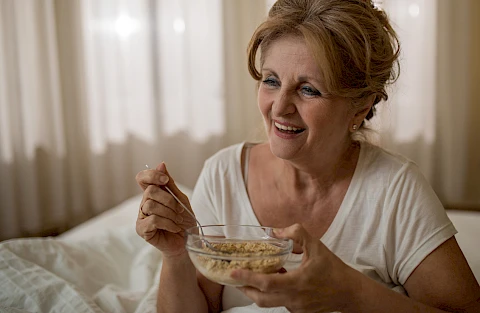
Known traditionally for its role in bone health, vitamin D may also be vital in preserving cognitive health as we age. Learn more about the benefits of vitamin D for seniors. We'll guide safe sun exposure, listing dietary sources of this vital nutrient, and discuss the importance of consulting with healthcare professionals for vitamin D supplementation.
Vitamin D and Its Importance for Seniors
Vitamin D is a unique nutrient because it is a vitamin and hormone in the body. It is essential for numerous functions, including calcium absorption for healthy bones and teeth.
Maintaining suitable levels of vitamin D becomes exceptionally crucial for senior citizens. Vitamin D aids in physical health and significantly affects mental well-being.
Vitamin D and Brain Health
Recent studies suggest that the "sunshine vitamin" could be vital for brain health. Researchers have found that vitamin D potentially protects the brain against cognitive decline, a common issue in aging adults. Cognitive decline can range from mild forgetfulness to more severe forms, such as dementia or Alzheimer's disease. Vitamin D supports brain health by reducing inflammation, clearing plaques typically associated with Alzheimer's, and increasing the number of chemicals in the brain that protect neurons.
Safe Sun Exposure for Vitamin D
Sunlight is one of the most effective ways to get vitamin D. When the skin is exposed to sunlight, it produces vitamin D. However, too much sun exposure can lead to skin damage and increase the risk of skin cancer.
For seniors, the key is to get a safe amount of sunlight. Typically, this is around 15 to 30 minutes of midday sun exposure twice a week. Of course, this could vary depending on factors like skin type, location, and time of the year.
Dietary Sources of Vitamin D
Several foods are also rich in vitamin D. Fatty fish like salmon, mackerel, and tuna are among the best sources. Other good sources include egg yolks, cheese, and vitamin D-fortified foods like milk and cereals.
However, it is tricky for seniors to meet their vitamin D requirement through diet alone. As such, incorporating a variety of these foods into their regular diet is essential to boost vitamin D levels.
Consulting Healthcare Providers for Vitamin D Supplementation
Even with a balanced diet and safe sun exposure, some seniors may still face a vitamin D deficiency. In such cases, vitamin D supplementation can be an effective solution. However, before starting any supplement regimen, consult with a healthcare provider. They can assess the individual's nutritional needs, consider existing medical conditions, and prescribe the appropriate dosage.
Are You Getting the Right Amount of Vitamin D?
Vitamin D is a vital nutrient for seniors, playing a significant role in physical and cognitive health. Ensuring seniors receive enough vitamin D through sunlight, diet, or supplements can help them maintain mental function and potentially slow cognitive decline.
Here at Senior Helpers Chesterton, we understand the unique challenges of aging. We are committed to promoting and supporting senior health in Michigan City, Beverly Shores, Hobart, La Porte, and Lake County. If you need assistance in caring for a loved one, contact us.